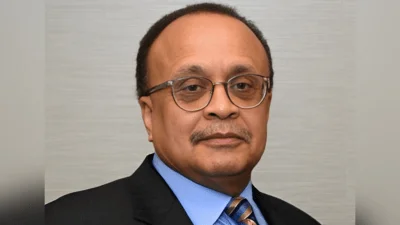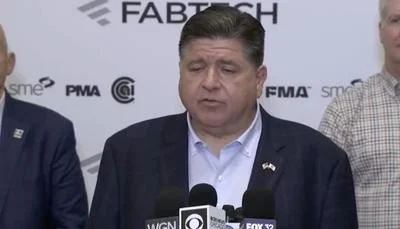Former State Rep. Jeanne Ives | jeanneives.org
Former State Rep. Jeanne Ives | jeanneives.org
Jan. 8 marked the end of the 100th General Assembly in Springfield, and almost certainly the end of any chance at transparency in contract negotiations between Illinois school districts and the all-powerful, politically connected teachers’ unions, says an outgoing legislator.
Former state Rep. Jeanne Ives, a Republican from Wheaton and the champion of transparency bills filed in each of her three sessions in the General Assembly, has retired.
“I believe that no one will pick up the legislation and make it a priority,” she wrote in an email.

Classroom
The bills, hailed by the editorial board of the Chicago Tribune, would have injected a measure of public scrutiny into the process by requiring the posting of details in the pending contracts, as well as public hearings, before final board approval.
“The surest way to get a fair contract that is affordable is to expose the whole negotiation and the final contract provisions to the scrutiny of the public so they can weigh in on the merits of the contract before it is approved,” Ives said.
School districts in Hinsdale and Geneva typify what taxpayers face when negotiations are held “behind closed doors,” wrote Ives.
By the time Geneva residents saw the price tag on the new teachers' contract in District 304 in Kane County, they had already bought the product. Taxpayers found out the cost of the five-year contract, with its nearly 4 percent annual salary increases and other added benefits, only after the board approved it on Dec. 14.
In Hinsdale Township High School District 86 in DuPage County, taxpayers are wary of the board and the administration, the head of a local taxpayer group says.
Burr Ridge resident Zach Mottl, chairman of D86 Can Do Better, said that the board keeps changing the extimated costs for repairs and upgrades needed in its two high schools, Central and South.
“Voters have a hard time understanding the true numbers, sources and uses, because the board intentionally confuses them,” Mottl told Prairie State Wire. “In their hearts, the voters just know this board is not trustworthy.”
Mottl says he and others are also concerned that a portion of the borrowed money from a proposed $129.99 million bond issue on a ballot in April would go not just toward repairs at the schools but also fund sizable increases in salary and benefits for teachers. Contract talks are scheduled to begin this spring. Mottl said that his group will fight to defeat the bond request in the April referendum, which he calls a discount version of a $166 million proposal his group helped to defeat in November.
Secrecy also breeds bullying, both Ives and Mottl said, and children end up getting hurt the most. In Hinsdale, the board voted to eliminate funding for football and other athletics next year. The hitch is the programs will almost certainly be back if the voters approve the new bond funding. In Geneva, nearly 500 teachers walked off the job for a week, canceling not only classes but athletic events as well.
The trouble, Ives said, is that “the public and media have a short attention span, generally, and the egregious provisions of a contract years ago are forgotten by the next election cycle or when the next contract comes up for negotiation.”






 Alerts Sign-up
Alerts Sign-up